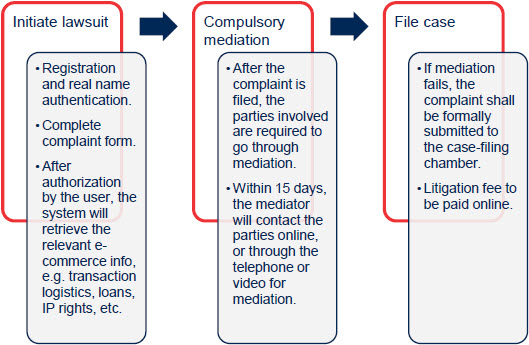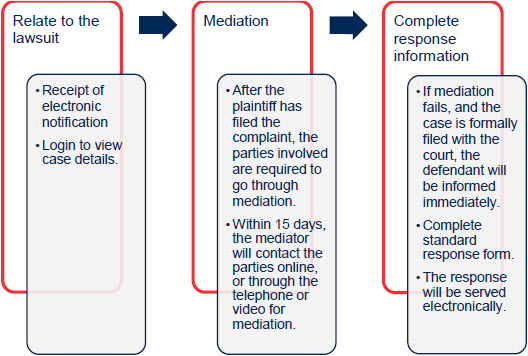10 August, 2017
As part of its legal reform, the Central Chinese government approved the establishment of the first cyberspace court in China on 26 June 2017.
The Cyberspace Court was established in Hangzhou, the capital of China's Zhejiang province and home to many technology companies, to cater to the increasing number of internet-related disputes. Two key features of this newly established Cyberspace Court distinguish it from other courts:
1. Cases are tried online; and
2. The court only hears internet-related disputes
Background
The set up of the Cyberspace Court follows a successful pilot which started in April 2015, when Zhejiang Higher People's Court confirmed three district courts in Hangzhou – Xihu, Binjiang and Yuhang, as the pilot courts to go online to hear e-commerce cases. In August 2015, the "E-commerce Online Court of Zhejiang Court" officially went online, where parties can file complaints via the internet after registration and real name authentication. The Cyberspace Court has accepted about 1,500 complaints since its inception.
Jurisdiction of the Cyberspace Court
The jurisdiction of the Cyberspace Court is limited to Hangzhou, and to civil disputes involving online shopping, online debt contracts and online copyright. Generally, the jurisdiction of the court is issue specific and governed by the PRC Civil Procedures Law, although the extent of its applicability to the Cyberspace Court is still unclear.
The Cyberspace Court has jurisdiction to hear the following types of cases:
- Online shopping contract disputes: disputes arising from the signing or performance of a contract where a seller has made a sale offer online and a buyer has accepted the purchase commitment.
- Online shopping product liability disputes: disputes arising from personal injury or property damage caused by defective products bought online, and the buyer is seeking tort liability from the product seller or manufacturer.
- Online service contract disputes: disputes arising from the signing or performance of a contract where internet service providers provide consumers with access to third party services or content services. Disputes relating to the provision of general online services by non-internet service providers are excluded.
- Online loan contract disputes: disputes arising from repayment of loans and interests of financial loan contracts or small loan contracts formed online with financial or small loan institutions. Disputes arising from repayment of loans and interests of loan contracts not entered into with financial or small loan institutions are excluded.
- Online copyright disputes: disputes relating to the infringement of right of communication through information network of a copyright work. Excluded are disputes that include other non-copyright related claims in addition to the infringement of right of communication through information network of a copyright work, for example, unfair competition.
- Cases are handled by the Cyberspace Court online whereby plaintiffs file complaints through the internet and evidence and case materials are submitted online by the litigants. Parties to the dispute may appear at hearings via video link and the case verdict will be delivered online. The procedures for initiating a lawsuit with the Cyberspace Court are set out below.
For the plaintiff:
Please click on the image to enlarge.
For the defendant:
Please click on the image to enlarge.
Based on the information provided on the Cyberspace Court's website, its decisions are subject to the review of the intermediate courts.
Paving the way for more cyberspace courts
On 19 July 2017, in collaboration with Chinese telecom company Sina Corporation, the Xishan District Court of Kunming established the first cyberspace court in Xishan, Yunnan province – the Online Court of Xishan District.
Core functions of the online court include online mediation, online filing, online payment, online trial, online cross-examination, electronic supervision, electronic services, live broadcast of court proceedings and voice recognition. It enables online dispute resolution and provides litigants with more efficient, convenient and diversified services.
Implications for brand owners
The establishment of the Cyberspace Court is a milestone for China in this digital era and this recent development is another testing ground, demonstrating China's genuine sincerity towards reform. While the Cyberspace Court offers brand owners another option for handling online copyright and e-commerce disputes, they should check the procedures of the Cyberspace Court which currently remain unclear and consider these when strategizing litigation in China.
For further information, please contact:
Patrick Fair, Partner, Baker & McKenzie
patrick.fair@bakermckenzie.com







